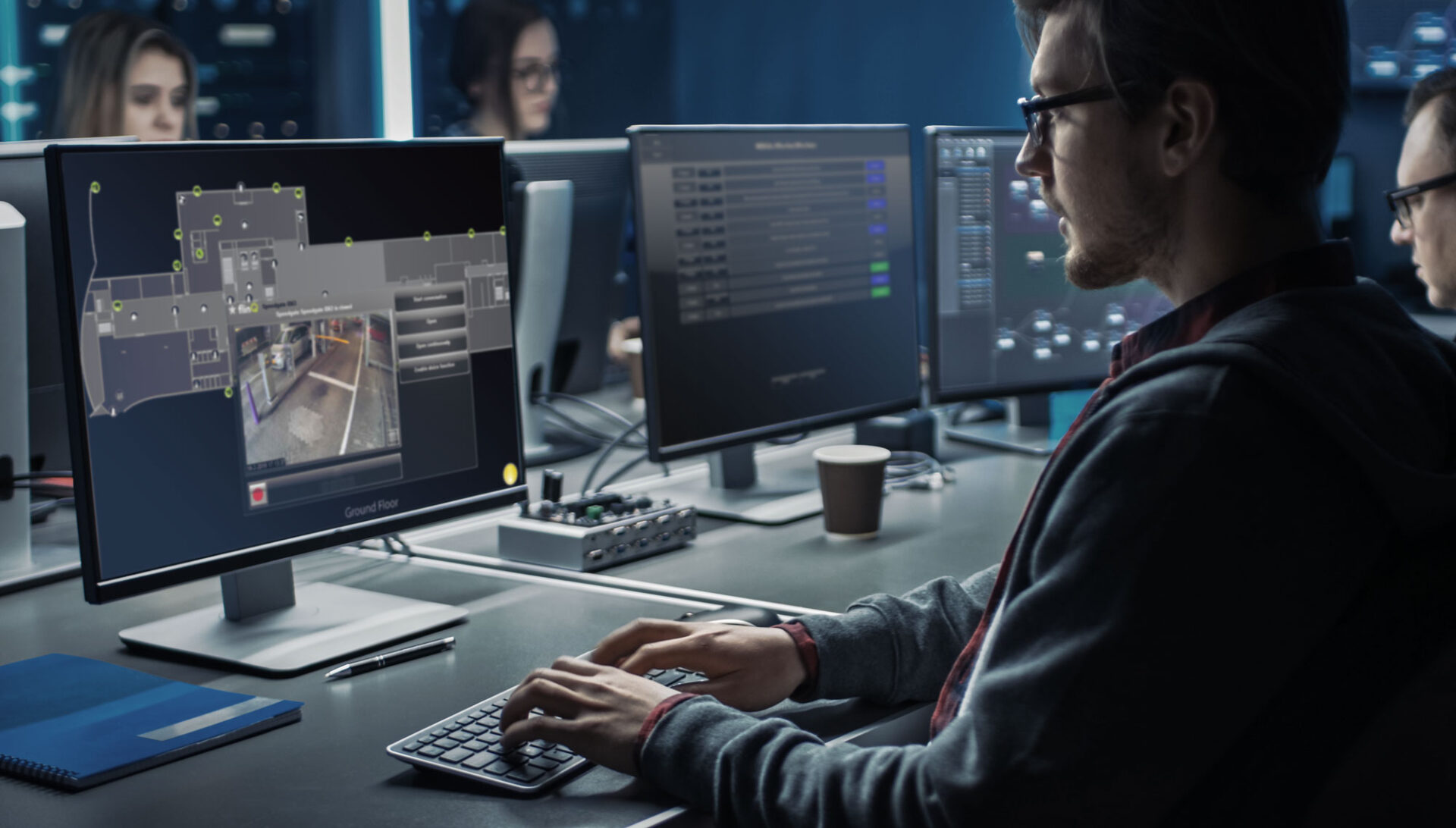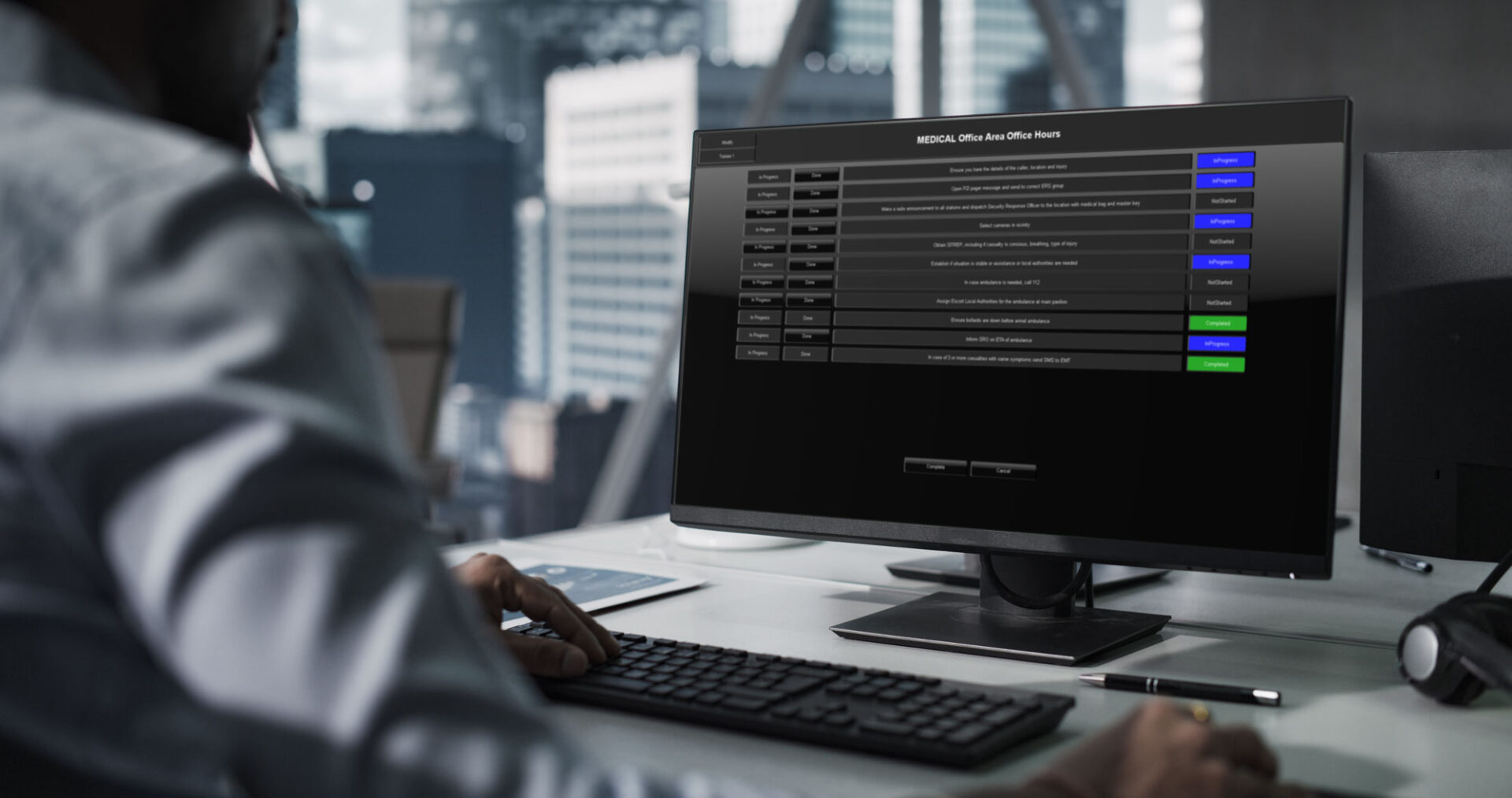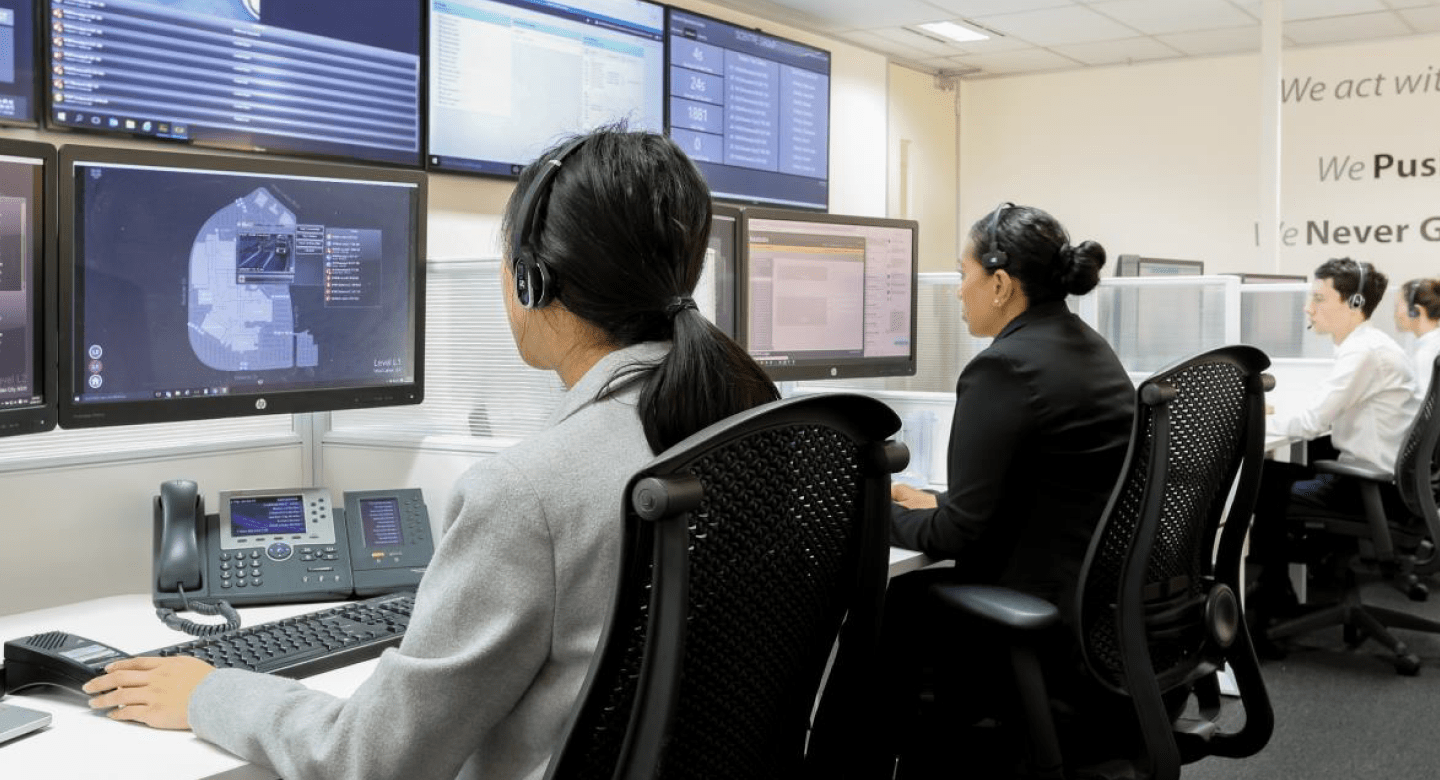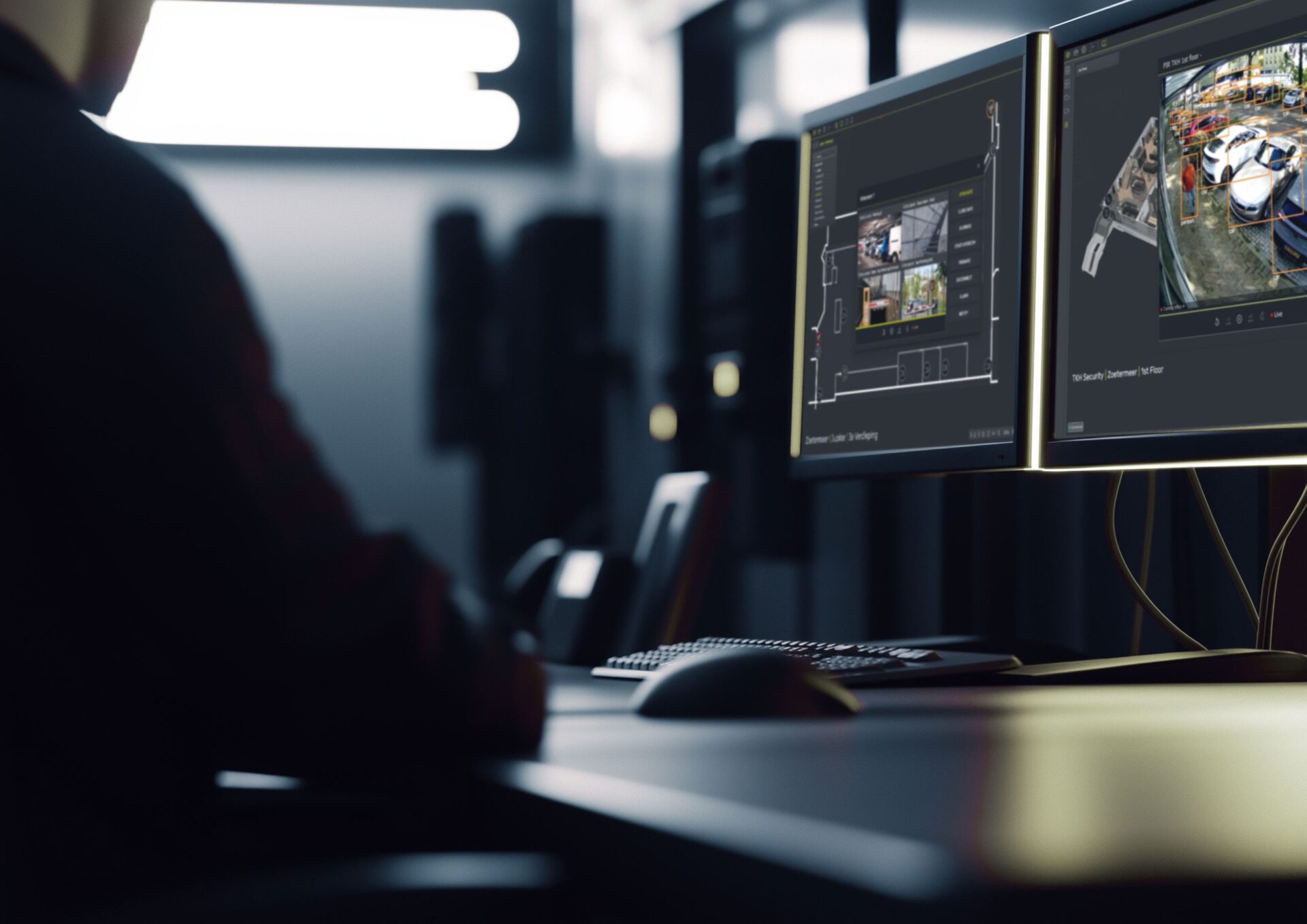Our platform and applications collect and correlate events from diverse security devices and systems, empowering personnel to proactively resolve events.
Main Value
01. One interface
The FLINQ Client combines multiple data sources into an easy-to-use format, allowing operators to quickly and consistently navigate alarms and complete tasks effectively.

02. Open architecture
FLINQ supports a wide range of third-party systems based on the “connector library”. The development to integrate with new technologies is possible.

03. Flexible topology
FLINQ enables flexible server and client placement, supporting the establishment of international call centers for security, including options for remote work.

04. Simple and intuitive
FLINQ is user-friendly, requiring minimal training. It follows the “Management by exception” principle, offering a clean and efficient layout.

05. Configurable, scalable, modular
FLINQ enables the creation of custom control functions through configuration, offering flexibility in manual, automatic, and scheduled operations. Additionally, it provides virtually limitless options for adding devices, users, and integrations.

Main Functionalities
Integration functionalities
Autonomous security systems like fire detection, intrusion detection, access control, intercom, and video management lack standardization, making data interpretation and validation difficult.
The Solution
FLINQ integrates various systems, accommodating supplier-specific protocols and technical limitations such as:
- Intrusion detection
- Fire detection
- Intercom
- Video management
- Access control
- Parking management
- Building management
- Incident management
How can I leverage integration functionalities in my facility?
Integration functionalities bring together crucial information exchanges that assist with seamless monitoring possibilities.
Videowall control
In setups with multiple cameras, video walls are commonly used for live footage in general surveillance. However, the static nature of video walls can limit their effectiveness.
The Solution
FLINQ controls videowalls to display relevant layouts based on scenarios like day, night, weekends, and incidents. These layouts are stored in the video management system and can be activated automatically or by operators.
Why use Videowall control?
- Videowall becomes dynamic and more useful.
- Automatically supports you with relevant, preconfigured video
for focus on primary operational tasks. - The usage of the videowall becomes unified, and standardized.
Event-driven management
Prompt attention is vital for events and alarms from connected security systems like intercom, video, or access control, especially in complex setups with multiple autonomous systems and buildings.
The Solution
Our solution offers an event viewer for prioritized notifications of events and alarms. You can select and process events, documenting them with predefined “reasons” and free texts for important information.
Why use Events Handling for my facility?
- Create a uniform and prioritized presentation for all events irrespective of nature or source.
- Organize the event processing of multi-sites with multiple operators.
- Keep track and log all actions of connected systems and operators.
- Standardization of operational steps.
Maps
Operators in visually oriented setups may prefer a map representation for their system layout. In busy environments, it’s important to quickly locate alarm origins and have convenient access to action buttons and details with a simple mouse click.
The Solution
Instantly showing the location and identification of an event in custom made maps based on digital plans allows you to feel comfortably assisted and showcases many other impressive functions such as:
- Digital drawings that can be converted to uniform maps like floor plans.
- Floor plans that contain dynamic icons and automatic links.
- Floor plans that can be provided in layers, so that certain types of “devices” can be hidden or shown.
- Navigation that can be easily done by configurable buttons (e.g., to activate maps of floors, buildings, and locations) also including the use of a “mini map”.
- Floor plans can be freely linked for logical navigation and include zoom functions.
Why Maps for my facility?
Maps are highly effective for operators, providing an overview, ease of use, and quick event reference. They enable device control and detailed exploration with minimal training and disruption.
Business Rules
In complex operational setups with multiple security systems and buildings, understanding and responding to events becomes challenging.
The Solution
Business Rules are crucial algorithms that combine connected system data for prompt action. This avoids overwhelming attention to every signal, reducing stress. FLINQ automatically determines the priority and starts your user workflow enabling you to load presets and control commands to connected systems.
How can Business Rules benefit my facility?
Avoid unnecessary mistakes while being presented with the most essential information and decisions that need to be made, for example:
- Procedures to follow.
- Instructions from a foreign connected system.
- Displaying accurate live video footage and steering to specific layouts
on the videowall. - Alarms verification, where information from multiple systems is evaluated to assess the situation and determine appropriate actions.
- Apply preconfigured scenarios.
Reporting
Comprehensive reporting is required for various needs such as auditing, workload analysis, desk occupation, cause-and-effect analysis, and training.
The Solution
The tool provides logging of all actions, events and changes in FLINQ including:
- Logging of alarms.
- Logging of sabotage and fault reports.
- Possibility to generate and export historical chronological overviews.
- Malfunction reports from the central equipment of the security installations.
- Generating and exporting annual trend analysis.
Benefits of Reporting for my facility
Reporting offers essential, real-time insights into facility operations, allowing continuous monitoring of processes and the proactive detection of potential issues.


